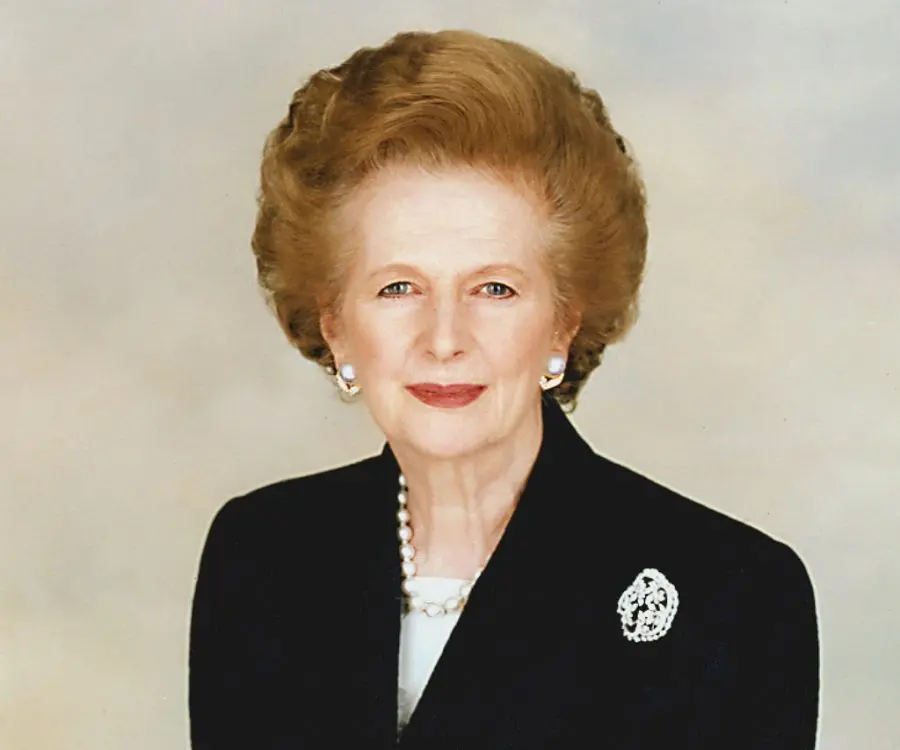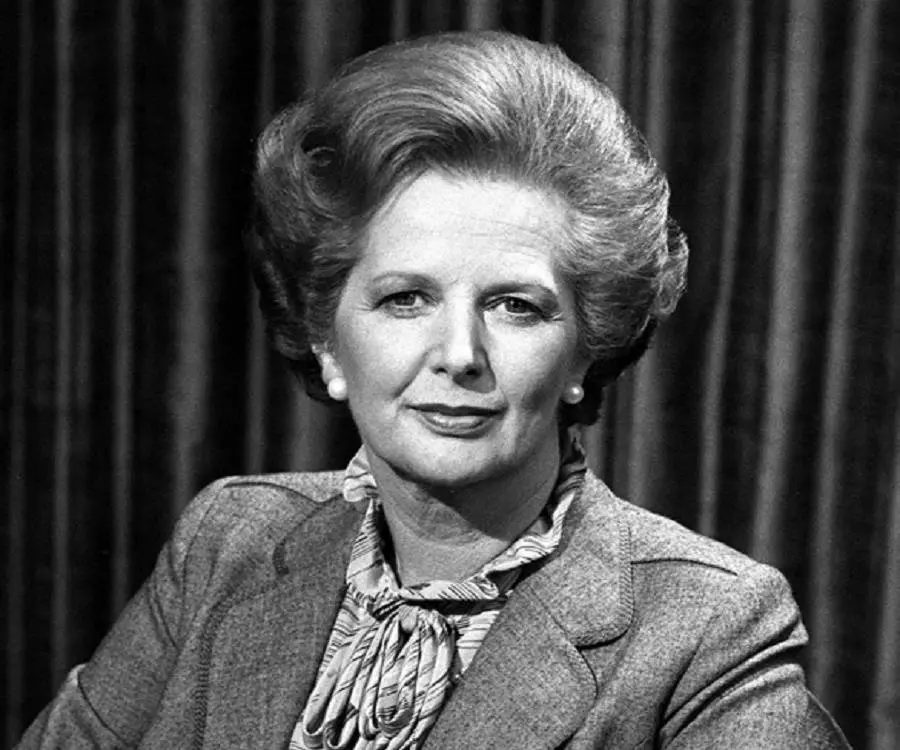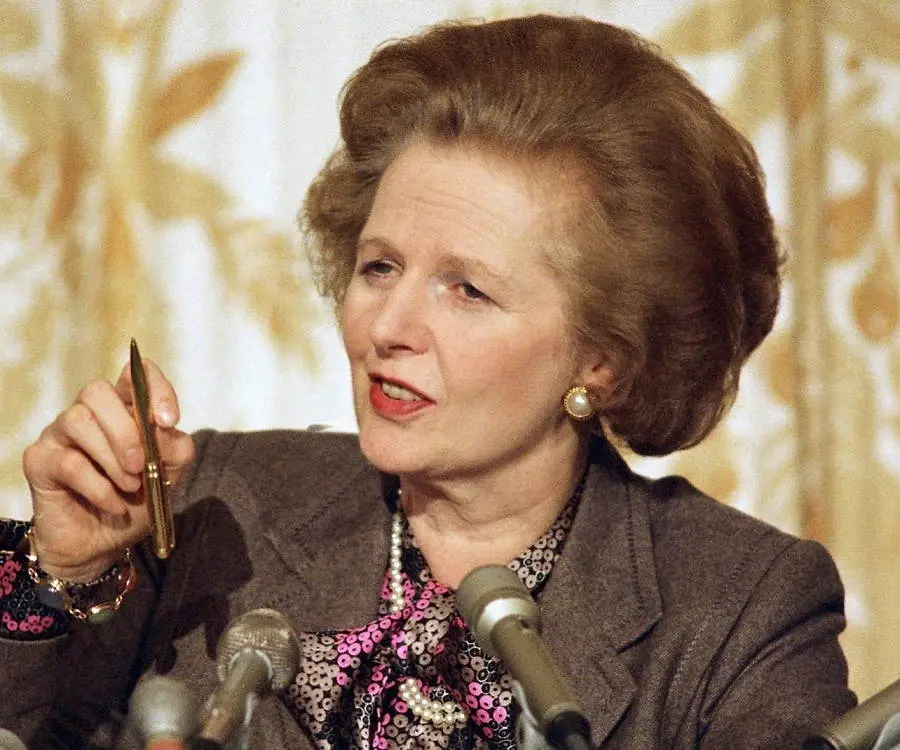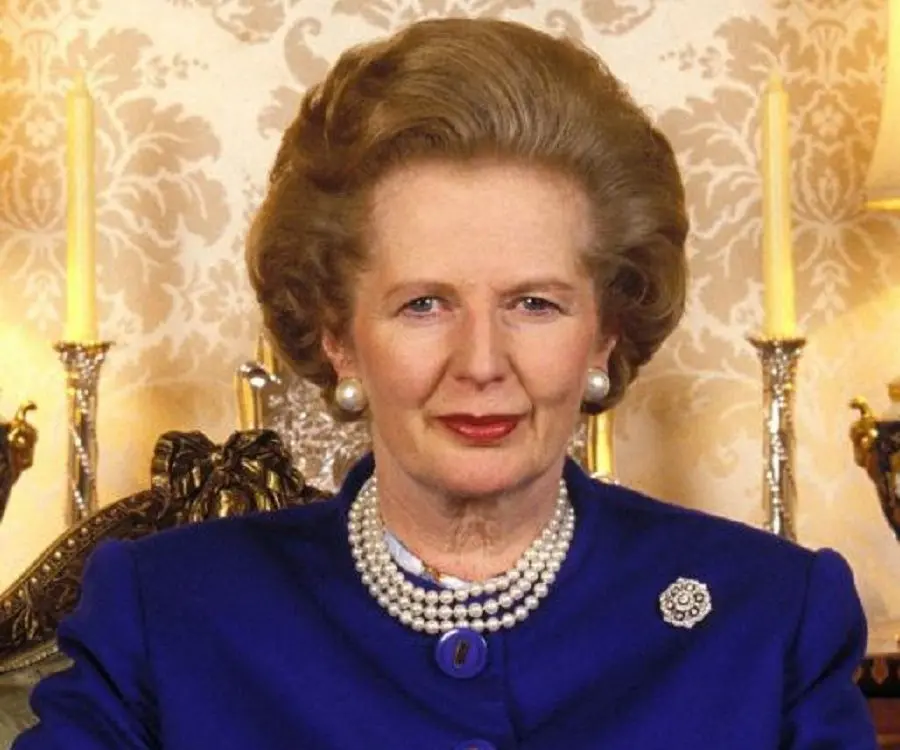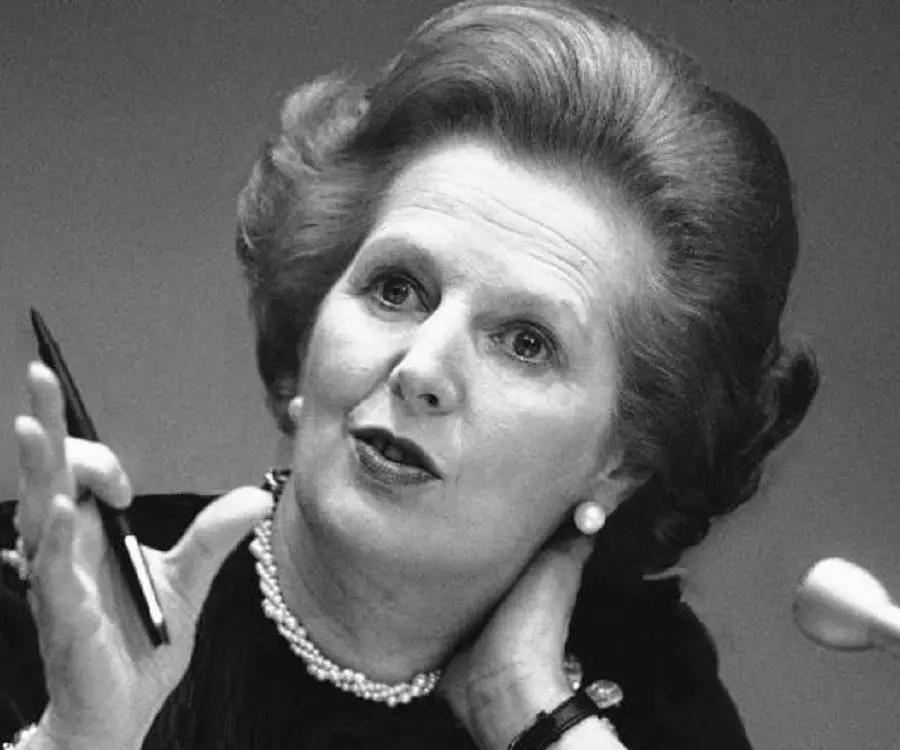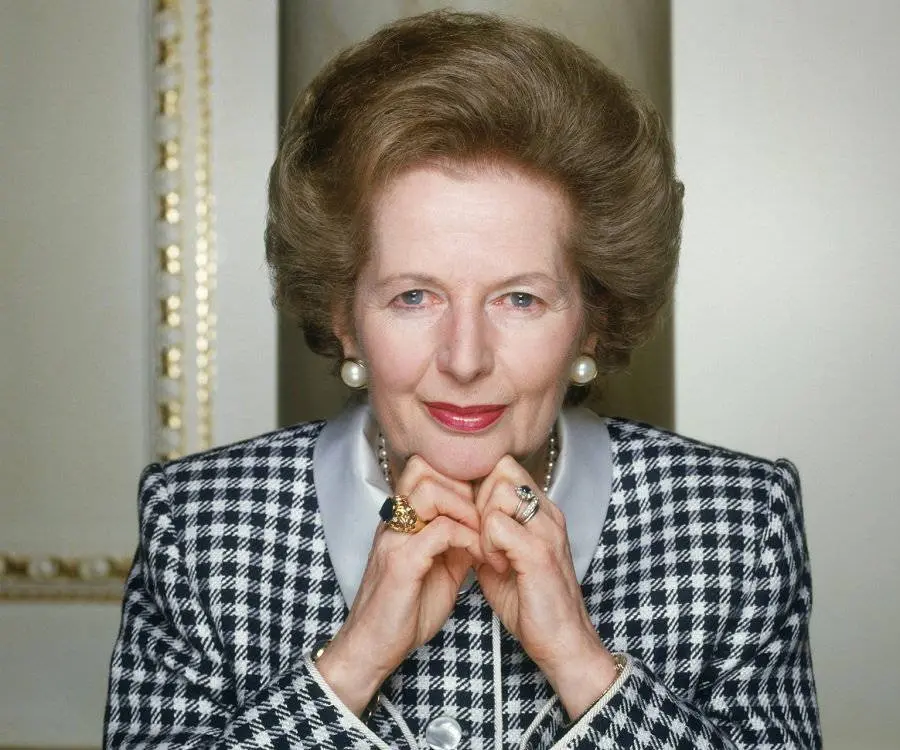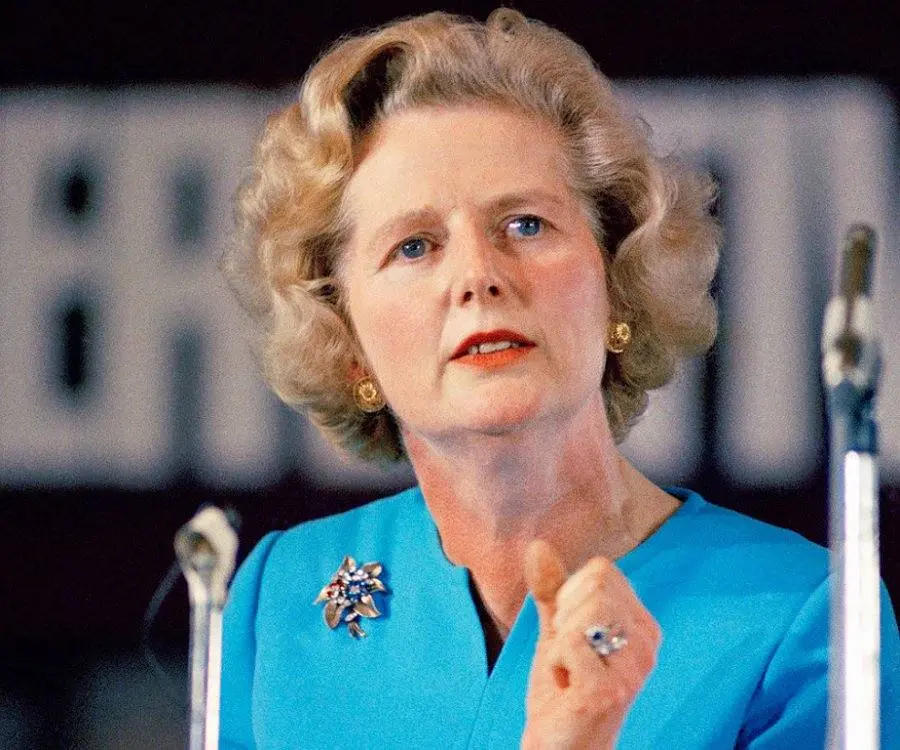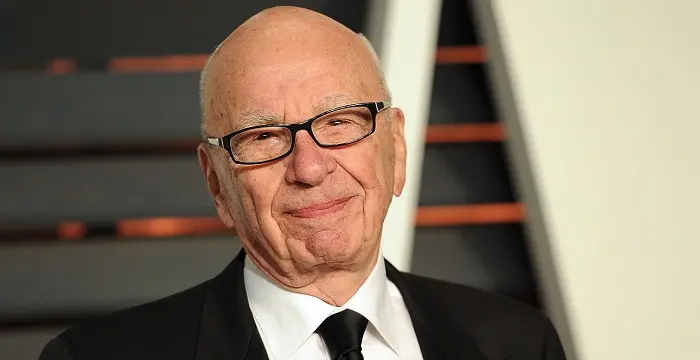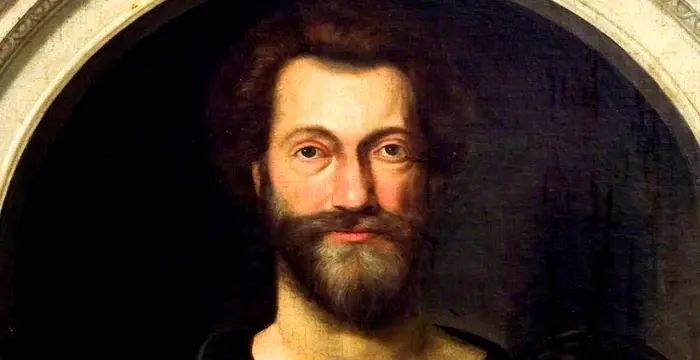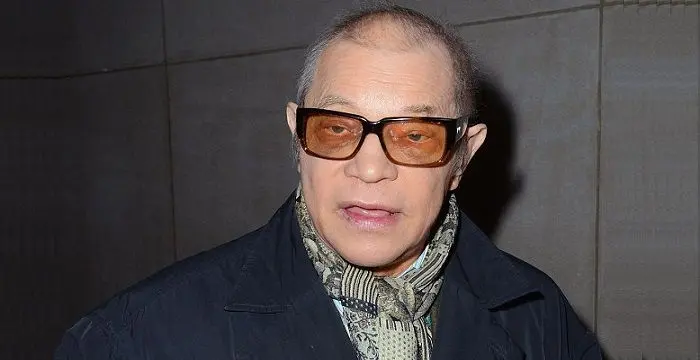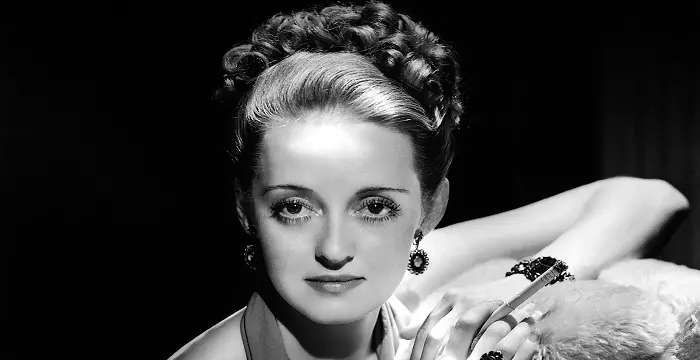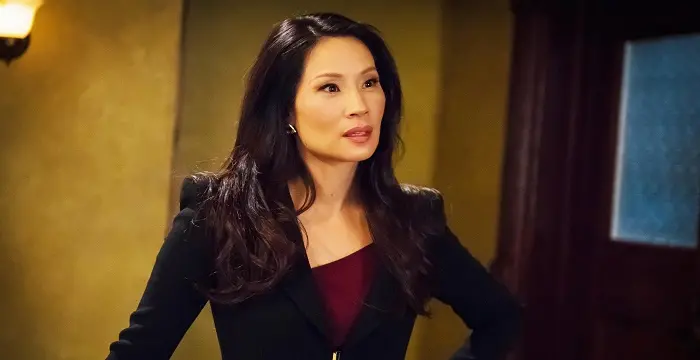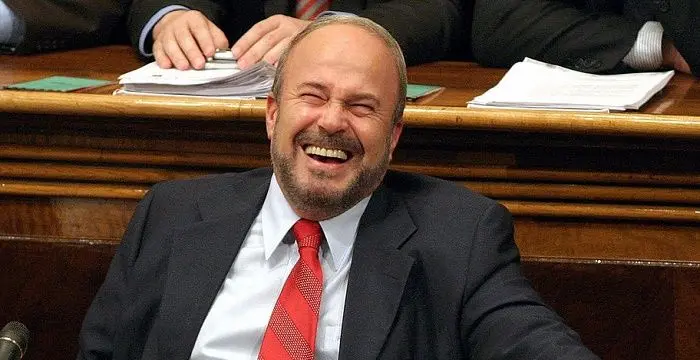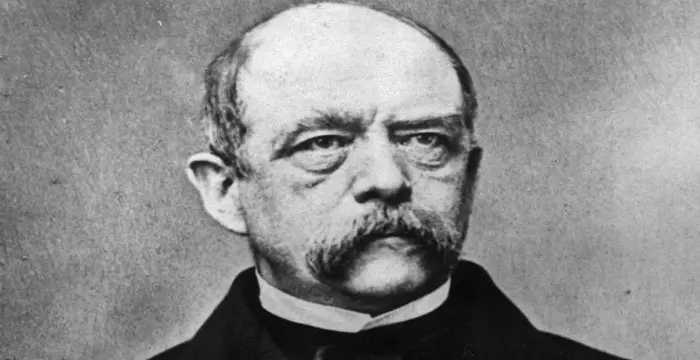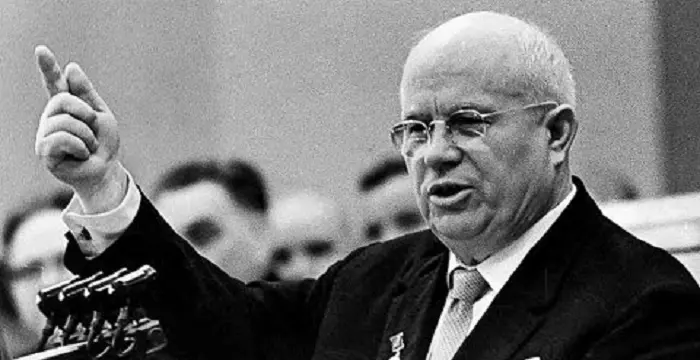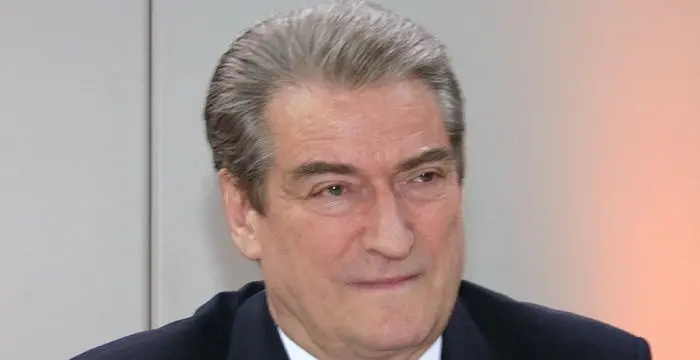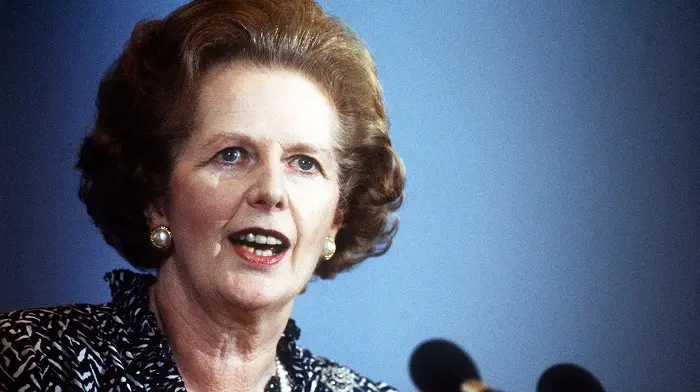
Margaret Thatcher - only Woman Prime Minister of United Kingdom, Career and Personal Life
Margaret Thatcher's Personal Details
Margaret Hilda Thatcher, leader of the conservative party is the first and only woman Prime minister of United Kingdom
| Information | Detail |
|---|---|
| Birthday | October 13, 1925 |
| Died on | April 8, 2013 |
| Nationality | British |
| Famous | Oxford University, Leaders, Political Leaders, Prime Ministers, ENTJ, ESTJ, only Woman Prime Minister of United Kingdom |
| Spouses | Denis Thatcher (m.1951–2003) |
| Siblings | Muriel |
| Childrens | Carol Thatcher, Mark Thatcher |
| Universities |
|
| Notable Alumnis |
|
| Birth Place | Grantham |
| Political Ideology | Conservative |
| Religion | Church of England (1951-), Methodism (1925-1951) |
| Personality | ENTJ |
| Gender | Female |
| Father | Alfred Roberts |
| Mother | Beatrice Ethel |
| Sun Sign | Libra |
| Born in | Grantham |
| Famous as | Only Woman Prime Minister of United Kingdom |
| Died at Age | 87 |
Margaret Thatcher's photo
Who is Margaret Thatcher?
‘I fight on, I fight to win’ asserted Britain’s first female Prime Minister and leader of the British Conservative Party; and win she did. She won three consecutive terms of office in two decades and became the only British Prime Minister in the twentieth century to do so. One of the most influential Prime Ministers of Britain, she was also the most debated stateswomen of the century, earning both respect and hatred from the public, particularly for her treatment of trade unions. She transformed the Conservative Party from just another participant in the lowest common denominator politics of Britain into a national champion. She earned the nickname ‘Iron Lady’ because of her leadership style and radical ideologies, which came to be known as ‘Thatcherism’. Her journey from a humble grocer’s daughter to Secretary of State for Education and Science was one of steely perseverance. Following her appointment as Prime Minister, she introduced a new wave of economic initiatives to reverse what she perceived as a national decline. Margaret Thatcher was a woman of staunch values and brought about radical changes even though her ideas were under siege. She strode British politics with great astuteness and had the knack of making the most of opportunities, a trait which made her the most admired, yet controversial leader of the UK.
// Famous Oxford University
Rupert Murdoch
Rupert Murdoch is a renowned Australian business magnate famous for his establishment, ‘News Corporation’ in the US. Read on for detailed information about his childhood, profile, career and timeline
John Donne
John Donne was a famous English poet, satirist, lawyer and priest of his time. Check out this biography to know about his childhood, family life, achievements and other facts related to his life.
Michael York
Michael York is a famous English actor who has enjoyed a busy and varied career in both, television and film. Explore this biography to learn more about his profile, childhood, life and timeline.
Childhood & Early Life
Margaret Thatcher, nee Margaret Hilda Roberts, was born on 13 October 1925, in Grantham to Alfred Roberts, a grocer, preacher and local mayor, and Beatrice Ethel. She, along with her sister, Muriel, spent most of her childhood in Grantham and helped her father with the grocery business.
Her father was active in local politics at the Methodist church and brought up both his daughters as strict Methodists. He became the Mayor of Grantham in 1945 but lost his position as alderman in 1952, when the Labor Party came into power.
She won a scholarship to Kesteven and Grantham Girls’ School, where she was head girl for the academic year 1942-1943. Her school reports showed academic consistency and brilliance in a number of extra-curricular activities.
In 1946, she attended Oxford College and became the President of the Oxford University Conservative Association in 1946, where she came to be inspired by the political works of Freidrich von Hayek; an influence that evident in all her reforms and policies.
She graduated with second-class honors and earned her Bachelor of Science in Chemistry in 1947 and moved to Essex to work as a chemist for BX Plastics.
Political Beginnings
Thatcher first stood for Parliament in 1950 and became the Conservative contender for the Dartford Labor Party seat. She became an instant media magnet because she was the youngest representative and the only female candidate at the time.
She knew from the start that it would be nearly impossible to defeat the Liberal Labor Party, but she still gathered a fan-following with her speeches. Though defeated, she remained undaunted and tried as a Conservative candidate once more, only to be defeated once again. She soon married Dennis Thatcher, who helped her rise to prominence.
In 1952, funded by her husband, she studied law and qualified as a barrister in 1953. Due to the birth of her twins, she could not contest for the 1955 General Election, but soon returned into the political arena.
She won her first election campaign in 1959, winning the seat of Finchley in London, a position she held till she retired in 1992.
She rapidly rose within the ranks of the Conservative Party, holding a variety of positions and finally, entered the Shadow Cabinet in 1967.
In 1970, Margaret Thatcher, as the Minister for Education, advocated an increase in the education budget and the creation of more schools. However, her tryst with infamy began when she earned the title of ‘Thatcher, the Milk Snatcher’ when she abolished a scheme providing free milk to primary school children during school hours.
She attracted a lot of negative publicity for her impulsive actions and soon, frustrated with then Prime Minister Edward Heath and his contrasting ideas, she ironically declared, ‘I don’t think there will be a woman prime minister in my lifetime’ in 1973.
On October 12, 1984 the Irish Republican Army planted a bomb in the hotel Thatcher was staying at in an attempt to assassinate her.
Rise To Prominence & Power
The Conservative Party lost power in 1974 and she soon became a dominant force in her political arena.
She got elected as leader of the Conservative Party in 1975, beating Edward Heath and became the first woman to serve as the opposition leader in the House of Commons, winning 130 votes against 119.
She was finally appointed as the Prime Minister on May 4, 1979 defeating the opposition party which was unpopular and divided.
Britain’s economy in 1979 was in dire financial crisis and Thatcher’s first term in office saw her adopting a new economic theory known as ‘Monetarism’.
During this time, she also changed government regulations on business and subsidies, resulting in business failures, higher unemployment and mounting inflation. She countered this problem with a change in taxation policies and money circulation, which reduced inflation levels while hushing public and economic opposition.
In the beginning of the 1980s, the ‘Thatcher’ government slowly began to gain popularity after their success in Falklands War. Argentina invaded Falkland, a British island in the southern hemisphere, in April 1982. Thatcher directed the British island to victory, which boosted her government’s popularity.
The success of the Falklands War led to the Conservatives winning by a large majority during the General Elections of 1982.
After the re-election of 1983, the Conservative majority grew and she continued to enact her economic policies. This time, she welcomed the period of ‘popular capitalism’ and introduced a sweeping drive of denationalizing state monopolies related to telephones, airports, steel and oil.
Margaret Thatcher and her government are best identified with a set of policies, practices and ideals known as ‘Thatcherism’. This belief system was founded on the basis of competition, privatization, self-reliance and clamps-down on trade unions.
In one critical event of 1984, known as ‘The Miners’ Strike’, she forced the miners back into work with no allowances, after they protested the closure of ‘uneconomic pits’. During this time, she also reduced social service expenses and expressed her dislike of the growing European Union Federalism, which closely became associated with ‘Thatcherism’.
Second Term, Third Term & Economic Changes
During her second term as Prime Minister, from 1983 to 1987, Thatcher handled a number of conflicts and crisis, the most important one being the assassination attempt against her in 1984. Fearless and unharmed, she went ahead with a Conservative Conference that was due to be held the same day, and delivered her speech.
In 1984, she signed a treaty with the Chinese government regarding the future of Hong Kong.
In 1986, she also voiced her support for Ronald Reagan’s air raids on Libya and allowed the U.S. military to use British bases to launch attacks. It is believed that during this time, America and Britain became very close allies and that Thatcher was largely instrumental in forging an important relationship with the superpower.
Elected for a third term in 1987, she sought to implement a standard scholastic curriculum across the country and tried to initiate a socialized medical system. However, she lost a lot of political support in the process.
During her tenure as Prime Minister for the third term, she introduced a series of new policies and changes in the revenue system. She also replaced the local government taxes with ‘Poll Tax’ and replaced residential tax policies with ‘head tax’, leading to an economic imbalance and dissention within her party.
As a result of these extensive policies, the Prime Minister’s popularity declined in 1989 and economic unrest started to mount. However, she was unfazed with the negative publicity and the widespread opposition she received for her decisions. She continued implementing her ideas and refused to compromise on tax and labor laws. Several protests were held at Trafalgar Square and a number of riots ensued.
Thatcher narrowly escaped the IRA bombing of a hotel in Brighton, part of a campaign led by the IRA for a united and independent Ireland. The incident generated a lot of sympathy from the public, which eventually helped her win the 1989 General Elections.
On November 1, 1990, Geoffrey Howe, the Deputy Prime Minister, resigned from his position in the Cabinet as Thatcher refused to let Britain join the ‘European Exchange Rate Mechanism’. His resignation proved to be a fatal blow for Thatcher’s political premiership and public image.
Decline & Later Years
With the economic condition worsening, the Cabinet persuaded her to resign, despite her winning four more votes than Michael Heseltine. Nevertheless, she was four votes short of absolute victory and she finally resigned on November 28, 1990, sensing a conspiracy against her.
She was finally replaced by her Chancellor, John Mayor after the 1992 General Elections.
Shortly after leaving office, she was appointed to the House of Lords, as Baroness Thatcher of Kesteven, in 1992. During this time, she wrote two books, ‘The Downing Street Years’ and ‘The Path to Power’, published in 1993 and 1995, respectively, both describing her political experiences.
In 2002, her book, ‘Statecraft’ was published, in which she explained her views on international politics.
For the first few years after resignation she remained extremely active as a public speaker. However, after the death of her husband and one of her dear friends, Ronald Reagan, she became a hermit. Her office in the House of Lords was permanently closed in July 2011, marking the end of her political and public life.
Major Works
She pushed through major labor union reforms, suppressed the miners’ showdown and suppressed the coal miner’s union. She implemented labor union reforms, which she received a lot of opposition for. She replaced the local government taxes with ‘poll tax’ and also reduced income tax rates from 98% to 40% and slashed corporate income tax rates from 52% to 35%.
One of Thatcher’s most controversial works was the systematic selling off the government’s business assets through privatization. Thatcher sold large government companies post-World War II, including airlines, steel, oil, electricity and telephone businesses. This went on to inspire other nations around the world to do the same. Although her actions resulted in high inflation rates, historians and biographers today, argue that this was probably one of Thatcher’s best moves and should have been lauded at the time.
During the Falklands Islands crisis, Thatcher declared war on the Argentinians with the help of the U.S. and the islands were able to defend themselves though they lacked sufficient military means against the Argentinians. Under the leadership of Thatcher, the Falklands Islands won their independence and Thatcher rose to prominence again in Britain.
Awards & Achievements
In 1970, Margaret Thatcher was appointed as the Privy Councillor, after she became the Secretary of State for Education and Science the same year.
She was made an honorary member of the Carlton Club after becoming the leader of the Conservative Party in 1975. She also became the first woman who was entitled to full membership rights of the club.
In 1983, she was elected as a Fellow of the Royal Society.
She was awarded the highest civilian honor, the ‘Presidential Medal of Freedom’ by the U.S. President Ronald Reagan in 1991.
She was appointed as a Member of the Order of Merit, conferred to her by the Queen, within two weeks of retiring from the House of Commons in 1992.
In 1992, ‘Time’ Magazine included her in the list of ‘100 most important people of the 20th century’.
She was appointed to the highest order of chivalry as the Lady Companion of the Order of the Garter in 1995.
She was the honorary recipient of the Ronald Reagan Freedom Award in 1998.
Personal Life & Legacy
She married Sir Dennis Thatcher in December 1951 and the couple had twins; Carol Thatcher and Mark Thatcher.
Sir Dennis Thatcher passed away due to pancreatic cancer on June 26, 2003, after which Margaret became a recluse, avoiding public appearances.
She suffered a number of strokes during her third term as Prime Minister; one of the reasons the Cabinet persuaded her to resign.
She was close friends with U.S. President Ronald Reagan and was deeply saddened by his demise on June 11, 2004. She attended his memorial service and delivered her eulogy via videotape.
She suffered from bouts of dementia and had to be repeatedly informed that her husband, Sir Dennis Thatcher had passed away.
On December 21, 2012, she underwent an operation to remove a non-cancerous growth from her bladder.
She passed away at The Ritz Hotel, after suffering a stroke.
Margaret Thatcher revised Britain’s economy, implemented tax policies and subdued trade unions by way of ‘Thatcherism’, her own political philosophy. To date, a number of Conservatives, in parts of Western and Southern England and Ireland, swear by Thatcher’s ideologies.
Trivia
This British Prime Minister was considered a ‘newbie’ Prime Minister in Japan during her first term and was offered protection by a couple of female karate experts during her visit.
This prominent political figure had to change the tone of her voice to sound more authoritative, for which she had to work with a vocal coach from the national theatre institute.
During her term as Prime Minister for three terms, she never appointed a ‘cook’ and cooked dinner for her husband every day.
This British Prime Minister worked 18 hours a day and would wind-up the day with a glass of her favorite scotch.
During her formative years as Prime Minister, she was given the nickname, ‘Iron Lady’ by the USSR.
This famous personality was portrayed by Oscar-winning actress, Meryl Streep in the 2011 film, ‘The Iron Lady’.
// Famous ESTJ
Bette Davis
Bette Davis was an acclaimed American actress. Check out this biography to know about her childhood, life, achievements, works & timeline
Lucy Liu
Lucy Alexis Liu is an American actress, model and an occasional film producer. This biography profiles her childhood, early life, career, major works, awards, achievements, personal life, legacy and timeline.
Emma Watson
Emma Watson is a British actress and model, best-known for her role as ‘Hermione Granger’ in the Harry Potter series. Explore this biography to learn more about her profile, childhood, life and timeline.
Margaret Thatcher's awards
| Year | Name | Award |
|---|---|---|
Other | ||
| 0 | 1991 - Presidential Medal of Freedom | |
Margaret Thatcher biography timelines
- // 13th Oct 1925Margaret Thatcher, nee Margaret Hilda Roberts, was born on 13 October 1925, in Grantham to Alfred Roberts, a grocer, preacher and local mayor, and Beatrice Ethel. She, along with her sister, Muriel, spent most of her childhood in Grantham and helped her father with the grocery business.
- // 1942 To 1943She won a scholarship to Kesteven and Grantham Girls’ School, where she was head girl for the academic year 1942-1943. Her school reports showed academic consistency and brilliance in a number of extra-curricular activities.
- // 1946In 1946, she attended Oxford College and became the President of the Oxford University Conservative Association in 1946, where she came to be inspired by the political works of Freidrich von Hayek; an influence that evident in all her reforms and policies.
- // 1947She graduated with second-class honors and earned her Bachelor of Science in Chemistry in 1947 and moved to Essex to work as a chemist for BX Plastics.
- // 1950Thatcher first stood for Parliament in 1950 and became the Conservative contender for the Dartford Labor Party seat. She became an instant media magnet because she was the youngest representative and the only female candidate at the time.
- // Dec 1951She married Sir Dennis Thatcher in December 1951 and the couple had twins; Carol Thatcher and Mark Thatcher.
- // 1952 To 1955In 1952, funded by her husband, she studied law and qualified as a barrister in 1953. Due to the birth of her twins, she could not contest for the 1955 General Election, but soon returned into the political arena.
- // 1959She won her first election campaign in 1959, winning the seat of Finchley in London, a position she held till she retired in 1992.
- // 1967She rapidly rose within the ranks of the Conservative Party, holding a variety of positions and finally, entered the Shadow Cabinet in 1967.
- // 1970In 1970, Margaret Thatcher, as the Minister for Education, advocated an increase in the education budget and the creation of more schools. However, her tryst with infamy began when she earned the title of ‘Thatcher, the Milk Snatcher’ when she abolished a scheme providing free milk to primary school children during school hours.
- // 1973She attracted a lot of negative publicity for her impulsive actions and soon, frustrated with then Prime Minister Edward Heath and his contrasting ideas, she ironically declared, ‘I don’t think there will be a woman prime minister in my lifetime’ in 1973.
- // 1974The Conservative Party lost power in 1974 and she soon became a dominant force in her political arena.
- // 1975She got elected as leader of the Conservative Party in 1975, beating Edward Heath and became the first woman to serve as the opposition leader in the House of Commons, winning 130 votes against 119.
- // 4th May 1979She was finally appointed as the Prime Minister on May 4, 1979 defeating the opposition party which was unpopular and divided.
- // 1st Apr 1982In the beginning of the 1980s, the ‘Thatcher’ government slowly began to gain popularity after their success in Falklands War. Argentina invaded Falkland, a British island in the southern hemisphere, in April 1982. Thatcher directed the British island to victory, which boosted her government’s popularity.
- // 1983After the re-election of 1983, the Conservative majority grew and she continued to enact her economic policies. This time, she welcomed the period of ‘popular capitalism’ and introduced a sweeping drive of denationalizing state monopolies related to telephones, airports, steel and oil.
- // 1984In one critical event of 1984, known as ‘The Miners’ Strike’, she forced the miners back into work with no allowances, after they protested the closure of ‘uneconomic pits’. During this time, she also reduced social service expenses and expressed her dislike of the growing European Union Federalism, which closely became associated with ‘Thatcherism’.
- // 1984In 1984, she signed a treaty with the Chinese government regarding the future of Hong Kong.
- // 12th Oct 1984On October 12, 1984 the Irish Republican Army planted a bomb in the hotel Thatcher was staying at in an attempt to assassinate her.
- // 1986In 1986, she also voiced her support for Ronald Reagan’s air raids on Libya and allowed the U.S. military to use British bases to launch attacks. It is believed that during this time, America and Britain became very close allies and that Thatcher was largely instrumental in forging an important relationship with the superpower.
- // 1987Elected for a third term in 1987, she sought to implement a standard scholastic curriculum across the country and tried to initiate a socialized medical system. However, she lost a lot of political support in the process.
- // 1989Thatcher narrowly escaped the IRA bombing of a hotel in Brighton, part of a campaign led by the IRA for a united and independent Ireland. The incident generated a lot of sympathy from the public, which eventually helped her win the 1989 General Elections.
- // 1st Nov 1990On November 1, 1990, Geoffrey Howe, the Deputy Prime Minister, resigned from his position in the Cabinet as Thatcher refused to let Britain join the ‘European Exchange Rate Mechanism’. His resignation proved to be a fatal blow for Thatcher’s political premiership and public image.
- // 28th Nov 1990With the economic condition worsening, the Cabinet persuaded her to resign, despite her winning four more votes than Michael Heseltine. Nevertheless, she was four votes short of absolute victory and she finally resigned on November 28, 1990, sensing a conspiracy against her.
- // 1992Shortly after leaving office, she was appointed to the House of Lords, as Baroness Thatcher of Kesteven, in 1992. During this time, she wrote two books, ‘The Downing Street Years’ and ‘The Path to Power’, published in 1993 and 1995, respectively, both describing her political experiences.
- // Jul 2011For the first few years after resignation she remained extremely active as a public speaker. However, after the death of her husband and one of her dear friends, Ronald Reagan, she became a hermit. Her office in the House of Lords was permanently closed in July 2011, marking the end of her political and public life.
- // 21st Dec 2012On December 21, 2012, she underwent an operation to remove a non-cancerous growth from her bladder.
// Famous Prime Ministers
Edi Rama
Edi Rama is the current Prime Minister of Albania. Check out this biography to know about his childhood, life, achievements, works & timeline.
Leo Varadkar
Cam Leo Varadkar is the current Taoiseach—the Prime Minister—of the Republic of Ireland. Check out this biography to know about his childhood, family life, achievements and other facts about his life.
Fatos Nano
Fatos Nano is an Albanian politician who served as Prime Minister of Albania for several times. Check out this biography to know about his childhood, life, achievements, works & timeline.
Otto von Bismarck
Otto von Bismarck served as the Chancellor of Germany and the Prime Minister of Prussia. He unified the German states into a powerful German empire. This biography profiles his childhood, political career, life, achievements and timeline.
Nikita Khrushchev
Nikita Khrushchev was a former Soviet premier. This biography gives detailed information about his childhood, life, achievements and timeline.
Sali Berisha
Sali Berisha is an Albanian politician who served as the President and the Prime Minister of Albania. Check out this biography to know about his childhood, life, achievements, works & timeline.
Margaret Thatcher's FAQ
What is Margaret Thatcher birthday?
Margaret Thatcher was born at 1925-10-13
When was Margaret Thatcher died?
Margaret Thatcher was died at 2013-04-08
Where was Margaret Thatcher died?
Margaret Thatcher was died in The Ritz, London, England, UK
Which age was Margaret Thatcher died?
Margaret Thatcher was died at age 87
Where is Margaret Thatcher's birth place?
Margaret Thatcher was born in Grantham
What is Margaret Thatcher nationalities?
Margaret Thatcher's nationalities is British
Who is Margaret Thatcher spouses?
Margaret Thatcher's spouses is Denis Thatcher (m.1951–2003)
Who is Margaret Thatcher siblings?
Margaret Thatcher's siblings is Muriel
Who is Margaret Thatcher childrens?
Margaret Thatcher's childrens is Carol Thatcher, Mark Thatcher
What was Margaret Thatcher universities?
Margaret Thatcher studied at Oxford University, Huntingtower Road Primary SchoolKe, steven and Grantham Girls' School, Somerville College Oxford
What was Margaret Thatcher notable alumnis?
Margaret Thatcher's notable alumnis is Oxford University
What is Margaret Thatcher's political ideology?
Margaret Thatcher's political ideology is Conservative
What is Margaret Thatcher's religion?
Margaret Thatcher's religion is Church of England (1951-), Methodism (1925-1951)
What is Margaret Thatcher's personality?
Margaret Thatcher's personality is ENTJ
Who is Margaret Thatcher's father?
Margaret Thatcher's father is Alfred Roberts
Who is Margaret Thatcher's mother?
Margaret Thatcher's mother is Beatrice Ethel
What is Margaret Thatcher's sun sign?
Margaret Thatcher is Libra
How famous is Margaret Thatcher?
Margaret Thatcher is famouse as Only Woman Prime Minister of United Kingdom
